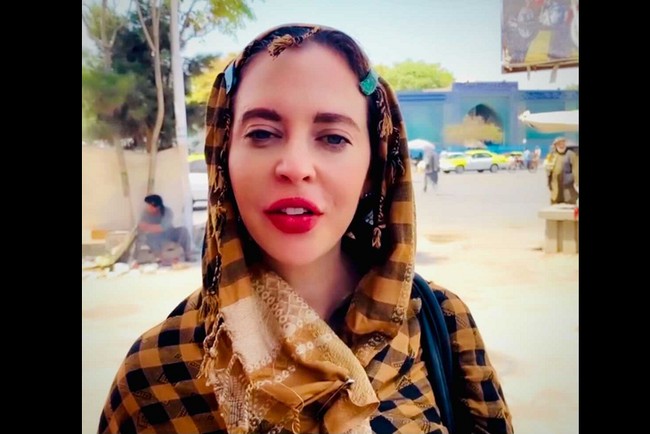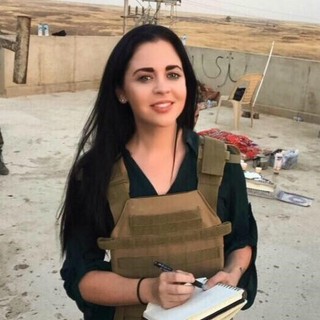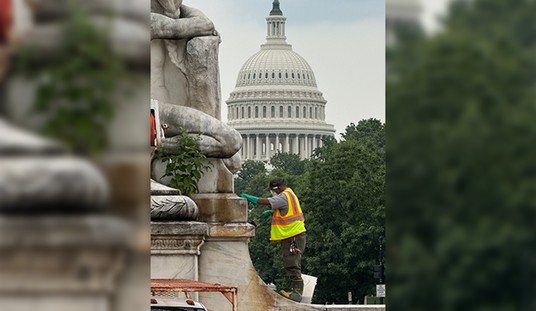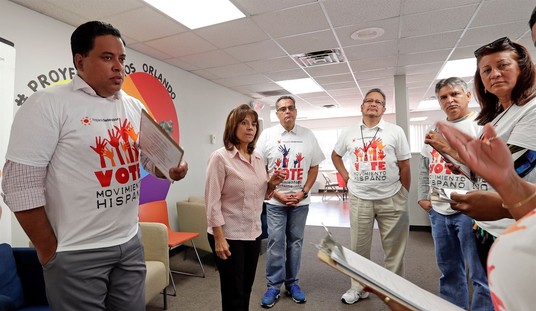Hollie McKay is no longer in Afghanistan. She arrived in the northern city Mazar-i-Sharif on Thursday, August 12, 2021, to gather interviews and photos for an independent project. The city was taken by the Taliban on Saturday, August 14, 2021; an event unanticipated by everyone concerned except the Afghan government and military commanders who had, unknown to the world, negotiated the surrender and capitulation of the country to the Taliban. Hollie reported this to the world in a bombshell interview with SmartHER News on Sunday, August 15th, shocking the world into the reality that the carefully made plans of the United States and NATO coalition had crumbled into dust overnight. RedState received a request from one of our other contributors, Hollie’s longtime friend Dennis Santiago, to help amplify Hollie’s report on this platform to maximize reach and impact; and to raise Hollie’s visibility to the rest of the world’s news media organizations. We did.
To say that a lot of traffic went back and forth exploring visibility tempered by risk management beginning on Saturday would be putting it mildly. By Monday, still two hundred miles from Kabul and unable to gain assistance from the United States, it was time to turn to what made McKay one of the most successful foreign correspondents in journalism. It was Hollie’s extensive network of contacts in the Middle East, built since she first began covering the region in 2014, that she used to contact the Taliban and request assistance in exiting the country. Hollie and her photographer Jake Simkin were driven by the Taliban to the Uzbekistan border on Wednesday, August 18, 2021.
Now safely in Uzbekistan, Hollie has this message for RedState readers.
She also penned this powerful and profound love letter to the people of Afghanistan on her personal blog, which we have reprinted here.
Love Letter to Afghanistan 🖤
The Taliban says the war is over. But has a new war just begun?
“Goodbyes are only for those who love with their eyes. Because for those who love with heart and soul there is no such thing as separation.”
-Rumi
I have never been to a place so soaked with blood stains and desperation. I have also never been to a place bursting at the seams with so many poetic voices and smiling eyes.
When I returned to Afghanistan this time, it was because I wanted to tell the human stories and the ultimate cost of war, as the U.S made its final swan song.
We can pontificate all day about statistics and percentages and death tolls and displacement numbers, but numbers have names and names have faces.
Each face has wrinkles that mark a map filled with stories. These are the ordinary Afghans who have often lost those they love most in the world. These are the ordinary Afghans who have no choice but to endure decades of hardship and havoc. These are the ordinary Afghans who supported the United States through two decades of occupation, who nursed the wounded and abandoned their own families for weeks or months in the pursuit of freedom.
Unlike many other places I have worked where people work ceaselessly and struggle, yet don’t seem to know that life could be any different or better, Afghans have tasted something else. They know that lasting peace is not forced by the hand.
The desperation is palpable. Beggars reach for your arm endlessly from beneath the blue burqa. Women mimic the act and sound of a bomb exploding when I ask them about the fate of family members. One young Afghan by the name of Lal tells me everyone – even the small children – want to learn English so they can run away and thrive in a place far from their own.
Everyone has lost someone. Everyone in Afghanistan is a survivor. Everyone has a strange story to tell, usually passed on nonchalantly as we eat bread and goat stew on plastic mats under candles and moonlight.
There was the Mujahideen commander who told me casually about his encounter with Usama bin Laden at an orange farm in Jalalabad in 1989. There is the witch doctor who tried to heal my woeful food poisoning by flapping his hands. I will not forget the women who boiled hot water and lathered my hair with soap when there was no electricity and running water. I will not forget the tribal elder who excitedly demonstrated the best way to fold my new checkered silk hijab.
The memories that matter most are the smallest. Those are the ones that sustain me and propel me to want to keep teetering on this rough draft of history.
Given the turmoil of the situation, in the end, all we could do as the week draws to a close was make a safe exit with a Taliban escort and approvals. It was an utterly strange portrait of a triumphant team taking hold of the media moment to deploy a softer PR front. Admittedly, I felt choked with emotion staring out at the serrated mountain edge inside a country I care for so much.
I am continuing to work in the region for a little while and monitor the fallout, re-configuring how best I can write and serve the Afghan people as the situation unfolds. There is something to being a conflict zone writer that both fuels me and destroys me. You want to keep going, keep moving, never go home because home isn’t a fixed object. Home is where the heart is and my heart is with the Afghan people. I feel wasted with helplessness and not being able to do more to support those whose lives have been ripped from beneath them, pleading and afraid.
Everyone wants the bombing and bloodletting to stop. Thus, the Taliban says the war is over.
But the question remains: is it over? Or is another just beginning?
When the window is right, I will be back. And as my endearing Afghan friend said to me this week, his gentle voice cracking, “I will keep all your things here for years until you come back.”
I will not say goodbye to Afghanistan.

Dennis Santiago contributed to this report.















Join the conversation as a VIP Member